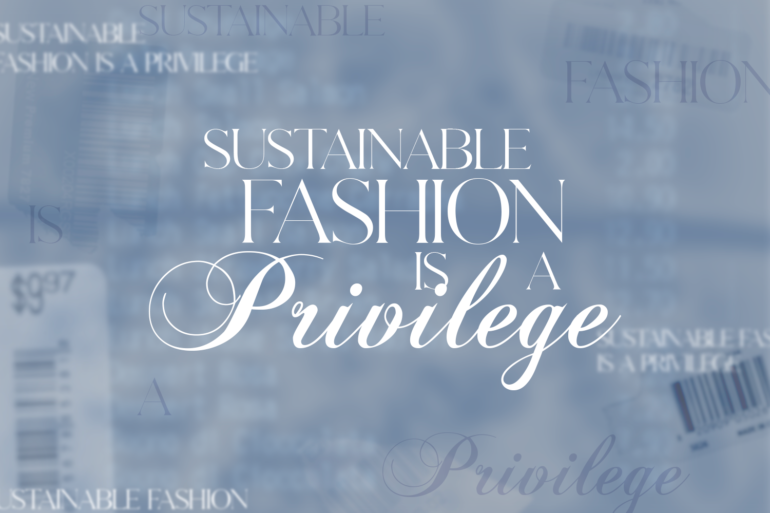As easy as it seems to be annoyed at someone for buying from fast fashion companies, we need to dive deeper into the nuance of the privilege connected to sustainable fashion. To be clear, there is a big difference between getting a $1000 haul every week and buying key items that you will utilize in your daily life.
We focus on how not buying from fast fashion brands is a privilege that many plus-size people do not have. As two plus-size women who try to be sustainable whenever possible, we often struggle when it comes to fashion. The average American woman is a size 16, but it can be a struggle to find clothing over a size 12-14. While we’re focusing on sustainability for this conversation, we must address fatphobia. Why do we not extend our size ranges when the average woman in the U.S. is a size 16?
As easy as social media may make it look to just stop by a thrift store to find sustainable pieces, there are often little to no pieces for taller or plus-size people. Although I would love to buy from a small sustainable brand, I can’t afford a $300 dress as a college student. Often these sustainable companies don’t have inclusive size ranges, but these are the only options we have seen for how to dress sustainably.
Women and people of ALL sizes deserve to feel their best in their clothing, and should never be held back from being their truest selves just because they can’t find items that fit them. We have both dealt with guilt from buying fast fashion, but getting 5 items that fit well is different from making 10 large purchases just for the sake of buying something.
There are still ways to try to be as sustainable and ethical as possible. Look at where you are buying from. Although fast fashion can easily be labeled “bad”, some brands do a better job at being more ethical than others. The Business of Fashion reported that Shein added 314,877 new pieces of clothing within the year to when the article was published. The second fast fashion company that added the newest pieces was Boohoo with 18,343. This means Shein added 296,534 more items to their site in one year than Boohoo. This is something you can be aware of as you try to decide which brands to purchase from. Some companies have larger size ranges but don’t produce as many articles of clothing as others. You can also search for brands like H&M that have ethical sections.
It can be so easy to repost every infographic on Instagram you see about fast fashion, however many people are lost in that conversation. When talking about sustainability and fast fashion it is so easy to blame the consumer when in reality, we should be turning to these companies. Until companies stop producing at such fast rates and using unethical labor, there will never be cheaper sustainable products for anyone, especially plus-size people.
We love to turn the blame on our friends and those around us rather than holding these corporations accountable. Even within smaller ethical companies, it can be very hard to find sizes that surpass XL or a US 12. As a society, we need to work together to hold companies to a higher standard of working conditions, sustainability, and size inclusivity. Until we do this we will always have many levels of inequality within the fashion industry.
Words by Annika Petersen and Alyssa Smalley.
Graphic by Danna Macias.

